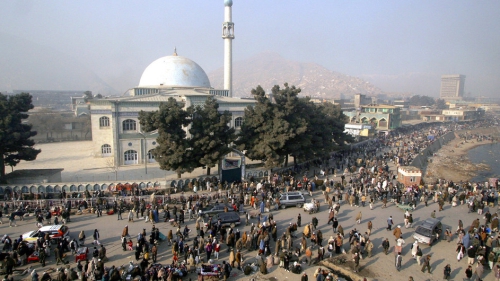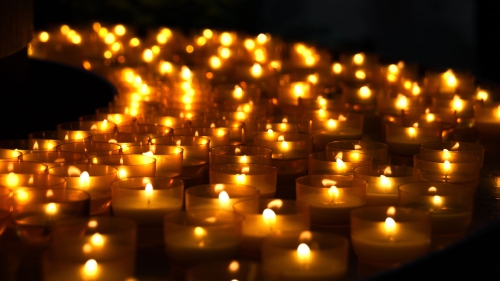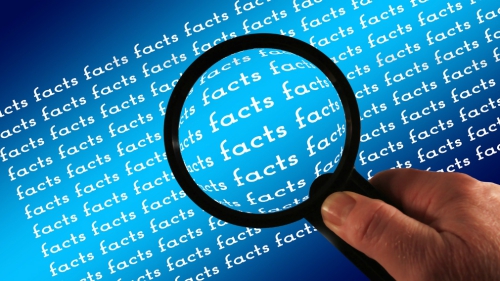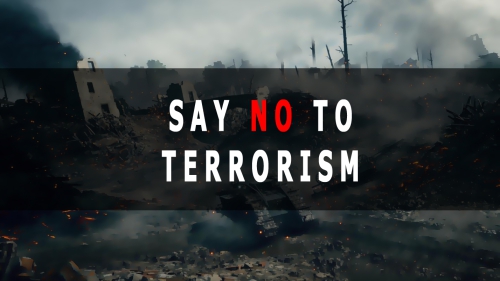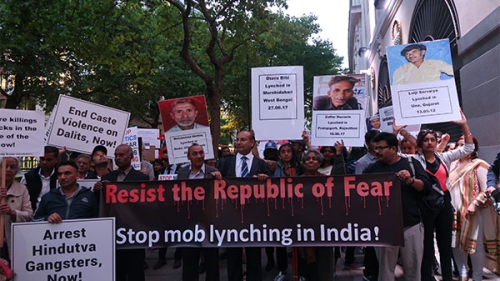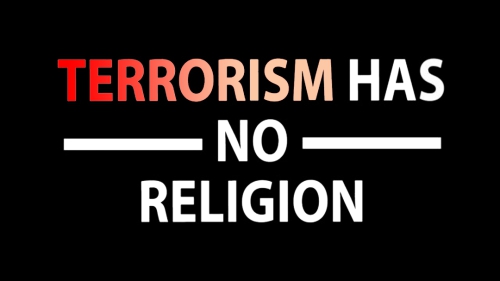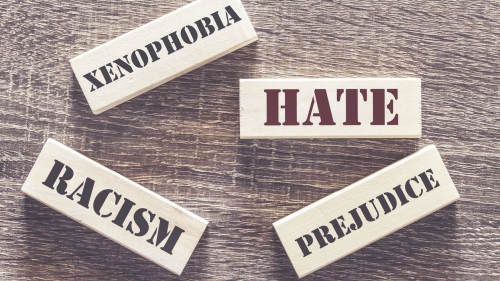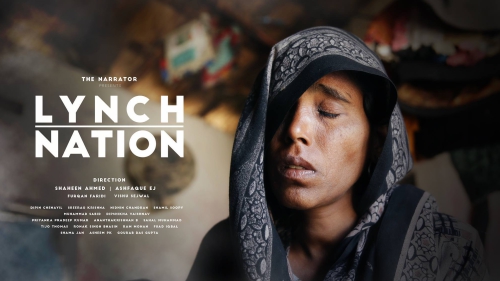Lost and Leaderless
 |
The drill is polished to perfection. As soon as news of a terrorist attack or arrest emerges in the American media, the public relations wings of organizations such as the Islamic Society of North America, the Muslim Public Affairs Council and the Council of American Islamic Relations (CAIR) spring into action.
Crisp press releases are dispatched immediately to large media outlets, whoever is implicated is condemned and a plea is made to the larger American society to not blame the acts of a few on the country's millions of peace-loving and law-abiding Muslim Americans.
During the past year alone, the Muslim American media machine has had many unfortunate opportunities to put its crisis response plans into action. Last November brought the Fort Hood tragedy in which Major Nidal Hasan, a Palestinian American, opened fire killing 13 people. Barely a month passed before the arrest of the 'DC-Five', a group of Pakistani American youths who were apprehended in Pakistan where they were allegedly intending to obtain terrorist training. And recently, of course, came the case of the failed Times Square bomber Faisal Shahzad, whose very ordinariness and seemingly assimilated life has thrown up questions about the intentions of the Muslim next door.
In the days following this incident, arrests were made all over the East Coast of the United States and nearly every news headline focused on aspects of the case, from Shahzad's fashion-loving wife to the money trail to the foreclosure of his home, in an effort to profile what motivates a terrorist.
All speculations lead, inevitably and predictably, to the one issue that is at the source of American consternation: the potential of the Muslim Americans living and working in the United States to organize and enable a terrorist attack. And it is to this crucial question that Muslim American organizations have failed to respond in any meaningful way.
The reasons for the catatonia that has not permitted Muslim Americans to truly assess the potential of radicalization within their own communities are complex.
One dominant factor is that the 9/11 paradigm has determined much of the Muslim American community's organizational responses to terror arrests. The specifics of 9/11, and the fact that it was a plot hatched and executed by non-Americans who had little familiarity with American life and culture, has thus been a cornerstone of the means through which the community has defended itself.
In distinguishing Muslim Americans as a separate breed from Pakistanis or Palestinians, and promoting white converts or African Americans to leadership roles, it was thought that a degree of insulation would be achieved and the community would be shielded from taking on responsibility for the nefarious acts of those in faraway Muslim lands.
With the emergence of the Muslim American terrorist, this strategy seems doomed to failure. While American-born Muslim Americans openly turn up their noses at those like Faisal Shahzad who were born and raised in the Muslim world, this distinction is lost in the American mainstream which increasingly perceives Muslim Americans born in America or elsewhere as having divided loyalties.
As reactions to the Times Square plot illustrate, the Muslim American community and the organizations it has produced since 9/11 remain largely reactive. They spring into action only in response to a crisis, thus entrenching the very apologetic paradigm that is most harmful to the Muslim American image. The community's concerns have not been to develop a theology or leadership of its own that is accepting of its immigrant dimension.
Instead, Muslim Americans remain concerned primarily with availing themselves of the American dream of amassing wealth while at the same time ensuring that the open social culture of the United States does not claim their future generations. Large mosques with crystal chandeliers and luxurious carpets are thus housed in the rich suburbs of many American cities, their parking lots crammed with luxury cars.
The apathy inevitably bred by affluence has meant that few, if any, prominent community members are bothered with issues such as the increasing alienation of young Muslim Americans - except when mainstream Americans become suspicious of them. Few Muslim American parents, for example, pause to consider the dualities in their children's lives, where they must keep themselves apart from mainstream American culture to maintain their Muslim identity and yet try to excel in every form of academic achievement.
Another misstep that has become visible in recent months has been the community's lack of initiative in understanding the racial as well as religious dimensions of the Muslim American identity. Last month, when the state of Arizona passed shockingly discriminatory laws against immigrants (most of those affected are people of Hispanic origin) the Muslim community remained largely silent and unconcerned. While national organizations such as CAIR issued several press releases, the concern remained restricted to statements, with few Muslim Americans interested in organizing solidarity marches or boycotts.
In other words Muslim Americans, either due to their own incipient racism against illegal Hispanic immigrants or lulled into apathy (the Faisal Shahzad case had yet to happen) failed to create linkages with Hispanic organizations and recognize that the roots of discrimination against the two groups are the same. In doing so, they failed to strategically link the racism that would force, for example, those of Hispanic origin to produce identity documents proving their legal status to discrimination against Muslim Americans that forces the latter to undergo extensive checks every time they board an aircraft.
Undoubtedly, 9/11 produced a drive for civic awareness in the Muslim American community that has led to much organizational progress. However, as the outcry following the Faisal Shahzad case demonstrates, the economic and ethnic diversity of the Muslim American community has become a hitch in developing a cadre of leadership and a willingness to take on thorny issues that go beyond apologetic press releases.
Rich Muslims with children born in the United States consider themselves an intra-community elite, one that sneers at recent immigrants that drive cabs and do not attend Ivy League universities. Similarly, Muslim Americans of Middle Eastern descent show little concern for those from places such as Pakistan and Afghanistan. The internal politics of mosques and Muslim American organizations are defined by these differences, which inevitably stymie progress and point to a communal reality that is confused and lacking in leadership at a difficult time.
*****
Rafia Zakaria is a US-based attorney teaching constitutional history and political philosophy. He can be reached at rafia.zakaria [at] gmail [dot] com
Topics: Muslim Public Affairs Council, Terrorism Channel: Opinion
Views: 4631
Related Suggestions
There are Muslims in America who have shown strong leadership with their selfless work for the community., had been very very successful leaders but have been accused of bad conduct or behaviour and have been driven out of this country, still has been a mystery for the whole community. That means a genuine Muslim leader is NOT successful in this country. What is the mystery?
I don't think that middle class is doing any good in America. Anything they have is not owned from car to home. Borrow and educate yourself. This system will fail someday.
Also, seems like mission of many muslim organisations in America is about building relationship and not neccessarily spreading Islamic Monotheism(wa Allahu Alam). All we here about them is a sister is harrased by hate group(etc). Am not saying they cant address that but is that whats Islam all about?. But when US accuses a fellow muslim of terrorrism, CAIR and all other organisations are nowhere tobe found. Fear of being label extremist group? Yesterday was Klu Klux Klan, Slavey and rascial discriminations but tommorow will be religious discrimination and concentration camps for the muslims in America. You better wake up before it's too late.
In essence, muslims are their own worst enemy.
Hey, you came to USA to make a better life for you in THIS Life (and Not Afterlife); so concentrate on what you came for to the USA. You don't find any problems with Hindus in US; because, they concentrate on making money, for which they came to USA. And they make money by the ways Americans do, by hook and crook, and even cheating (which is perfect on Wall Street and in the business world). If I had to worry about AfterLife, I would have stayed home and prayed in the jungles of India.








